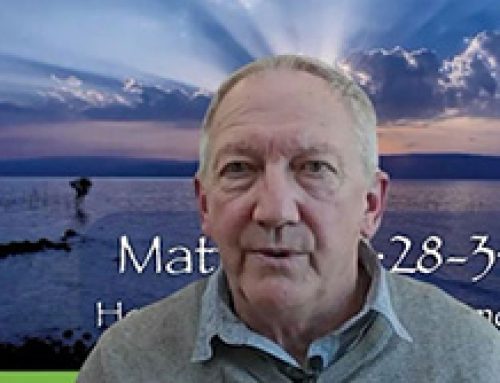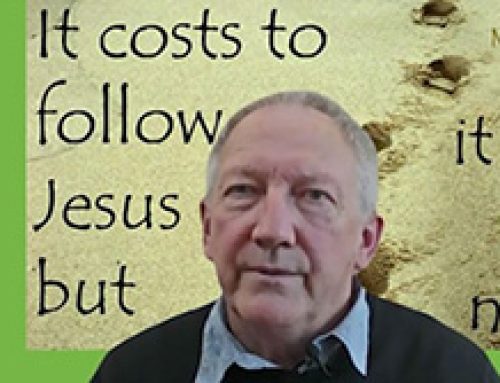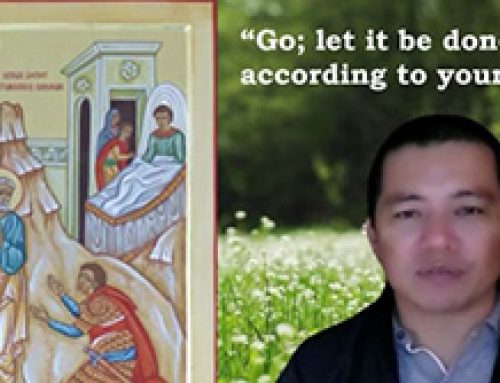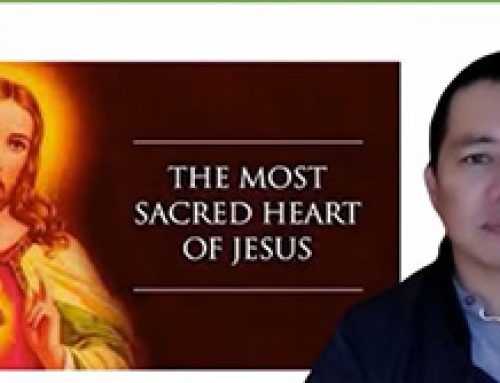Fr Paul reads from the Gospel of Matthew (19: 23-30) in which the disciples ask Jesus about who can enter the Kingdom of Heaven. Fr Paul says in all three synoptic Gospels, that is the Gospels of Mark, Matthew and Luke, the story of the testing and failure of the rich man is followed by the image of the camel and the eye of the needle and a further teaching by Jesus about those who do not accept his challenge. The parable of the eye of the needle is typical of the clear demands of Jesus, which are found time and again in the Scriptures, like the need to amputate the offending arm or foot. There is no room, basically, here for the softening of the demand Jesus makes. More comforting, says Fr Paul, is the final stress of Jesus that our human efforts are of no use whatsoever. Our helplessness, though, is no barrier we can leave it all to the power of a loving and merciful God. Further encouragement will come to the disciples in the following parable of the forgiving householder. Towards the end of the Gospel, Peter exercises his prerogative as leader to put a further question, which is, basically, ‘What’s in it for us? What do we get out of this?’ In Mark, they are promised a hundred-fold in this life and eternal life in the next. Matthew has nothing about the hundred-fold, he knows that the testing and persecution is to come. The disciples must be prepared to wait till the magnificent moment that he will describe more fully in the parable of the sheep and the goats. As we hear towards the end of the Gospel, there they are the 12 leaders of the new Israel and they will judge the whole people of God and have eternal life. For our reflection today, Fr Paul invites us to spend some time thinking about the words from the Gospel: ‘For God, everything is possible’.






Leave A Comment